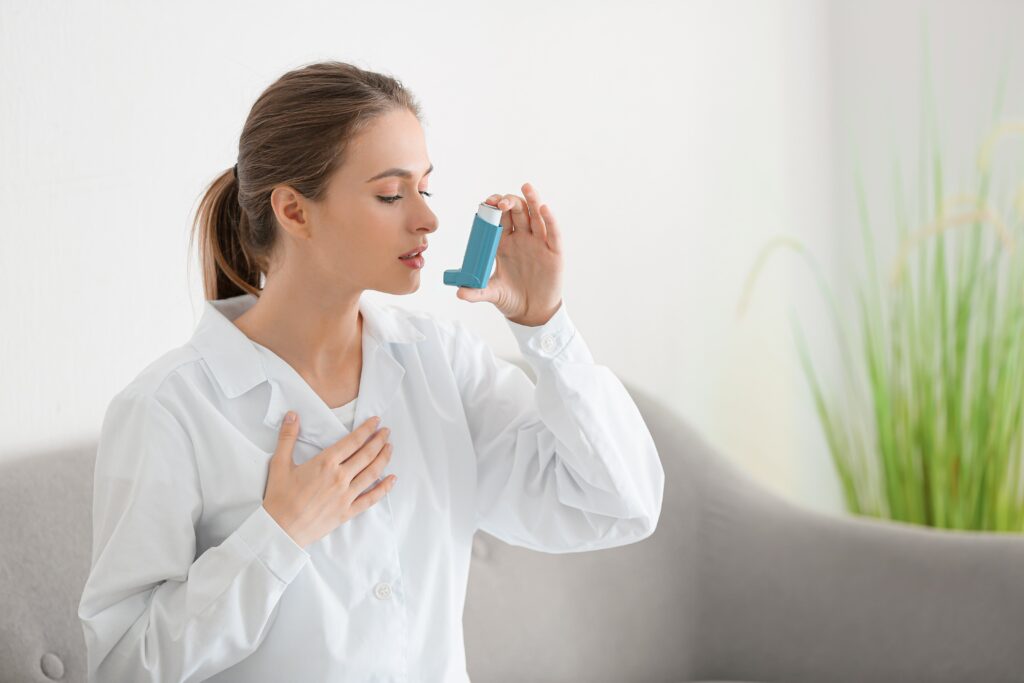The conditions and diseases that affect the lungs are one of the worst kinds of body conditions where the affected person experience intense breathing difficulty. Asthma is one such condition where asthmatic individuals experience intense difficulty in breathing when exposed to certain atmospheric and life situations.
What is asthma?
Asthma is a condition in which the gap in the airways shortens and swells and produces excess mucus. Shortness of breath, wheezing, and coughing are some of the conditions triggered by asthma. The degree of asthma varies across individuals. For some people, asthma is a minor issue but in some others, it is a major condition that could trigger an intense asthma attack that could even lead to death. So many life-threatening asthma attacks need intense medical attention.
Asthma is a very common condition that sees in people irrespective of age and gender. One thing to always keep in mind regarding asthma is that it is treatable, not curable. There is no permanent cure for asthma but with proper medical care, we can decrease the degree of symptoms.

Diagnosis of asthma
There are certain medical methods to diagnose asthma. Some of them are listed below;
1. FeNO Test: In this method, the amount of nitric oxide in your breath is measured. The presence of nitric oxide points out the inflammation of the lungs.
2. Spirometry: In this method, the machine used measures how fast you can breathe and also calculates the maximum time you can hold your breath in your lungs.
3. Peak flow test: In this method, a person is asked to blow out on a handheld device over a few weeks which calculates how fast they can breathe out. The variation in the amount over the weeks shows whether you are asthmatic or not.
4. Allergy test: Sometimes, asthma is triggered by certain allergies. To identify whether the asthma is caused by certain allergies, an allergy test and chest X-Ray is taken.
Signs and symptoms
Examining the signs and symptoms helps in the early diagnosis of asthma which helps in treating it from the beginning itself. The major symptoms associated with asthma are;
- Shortness in breath
- Chest pain
- Wheezing during exhaling (common in children)
- Difficulty in sleeping because of breathing difficulty
- Intense wheezing and coughing triggered by virus attacks like flu or cold
The important signs of asthma include;
- Intense difficulty in breathing even in less stressful situations
- The continuous use of the inhaler
- Increased and intense symptoms of asthma
The above are some of the main symptoms and signs associated with asthma. The early detection of asthma is important for its treatment. So if you have any above signs and symptoms quickly consult with your doctor.
The signs of intense asthma attacks
As mentioned earlier, asthma attacks can be life-threatening. It is important to find out if a person is having an asthma attack or not. Following are some of the signs that will help in the detection of an asthma attack;
1. The symptoms like coughing, wheezing, and breathlessness are getting more intense than it usually is.
2. The inhaler couldn’t help you in lessening the symptoms.
3. Intense breathing difficulty when eating, sleeping, and speaking.
4. In children, tummy or chest pain may come during asthma attacks.
If an individual experiences any of the above symptoms, they need quick medical attention otherwise it could even result in death.

First aid for asthma attacks
If you are in a situation where you have got an asthmatic patient facing intense asthma attacks, some first aid techniques will help in the time before medical bits of help arrives. The following are some of the first-aid techniques for asthma;
1. Calm them down. Sit them up straight
2. Give them an inhaler every 30 seconds or 60 seconds and take up to 10 puffs.
Immediately call for medical help and prevent the patient from panicking. You can handle the situation to an extent with the above methods.
How to keep asthma under control?
There are medications available for asthma. But the effort from the patient side is also necessary for an effective treatment. As mentioned earlier, asthma is not curable but is treatable. Once diagnosed with asthma, one has to take precautions to get asthma attacks.
Consult with your doctor continuously and never treat yourself. Take all your medicines as prescribed without break. Check with the doctor whether you are rightly taking your inhaler or not. Stay away from conditions, situations, or things that can trigger your asthma. Remember to always carry the inhaler and medication with you wherever you go.

